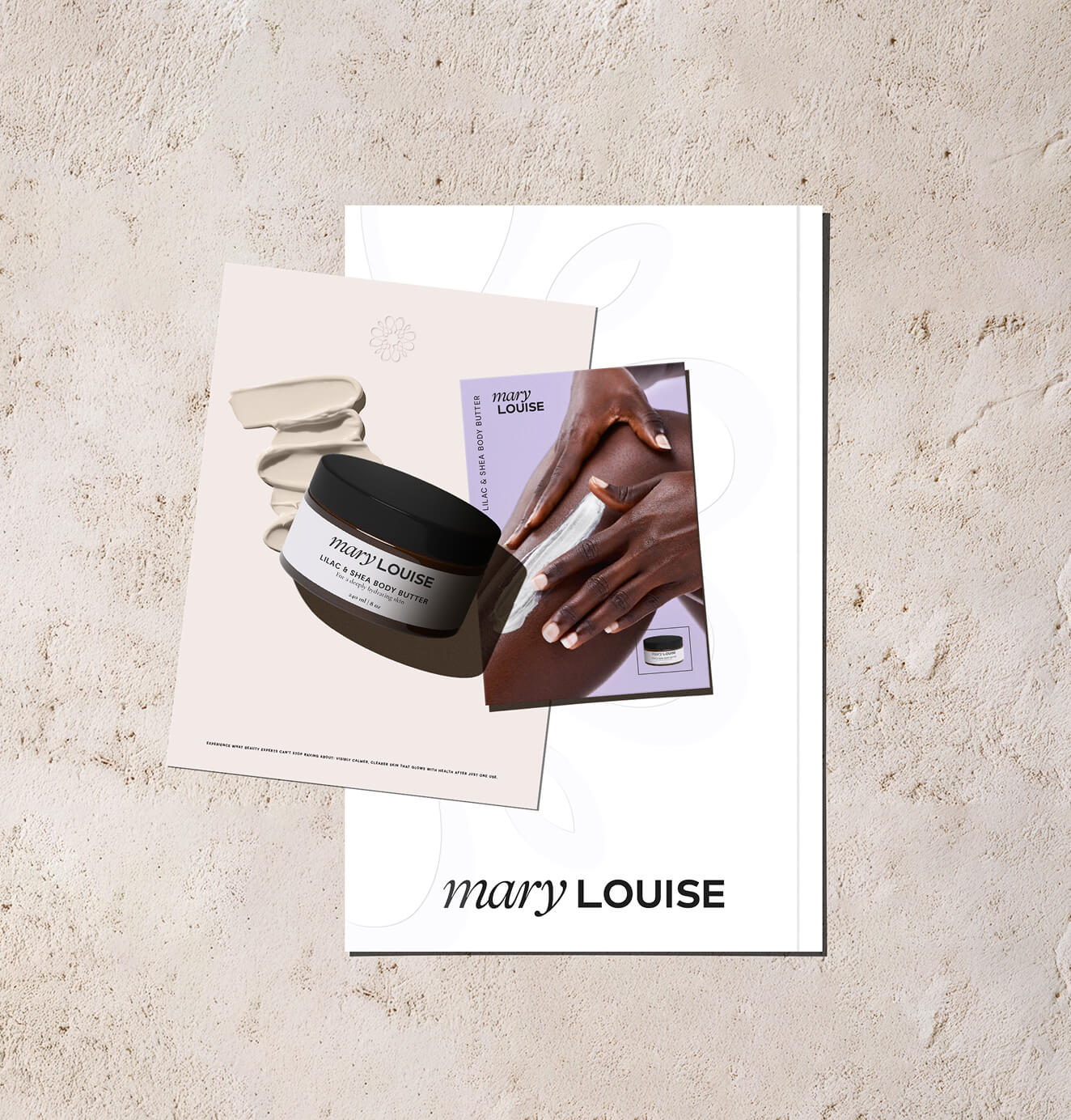The Ultimate Guide to Branding for Real Estate Agents
08/05/2025
Branding
Want to build a real estate brand that attracts clients and closes deals? This ultimate guide shows you how.

As a real estate agent, you have to stand out from the competition. It’s not enough just to be good at what you do; you also need to make sure that your clients remember who you are and what you offer them. That’s why it’s so important to build a memorable real estate brand.
.png)


How to Build a Memorable Real Estate Brand your Customers will Love



Not only will it help bring in new business, but it will also ensure that your current clients stay loyal to your services. Here are some tips for building a memorable real estate brand.
Determine Your Unique Value Proposition
What makes you different from other real estate agents?
Are there certain services or areas of expertise that you specialize in that others don’t?
Make sure your clients know why they should choose you over the competition; this could be anything from providing more personalized service to having access to better resources.
Whatever it is, make sure it is clearly communicated so that potential customers can see the value in working with you specifically.
Understand Your Ideal Clientele
Who is your target audience?
Are there certain neighborhoods or types of properties that attract more buyers and sellers than others?
Tailor your messaging and marketing strategies to appeal to the right people; for example, if most of your clients are first-time homebuyers, then focus on creating content and ads that highlight the benefits of purchasing a home for the first time.
Additionally, analyze market trends to better understand your potential customers; this will help inform decisions about which neighborhoods or types of properties are currently popular among buyers and sellers.
Lastly, make sure you always stay up-to-date on industry changes and practices; this will help keep clients informed on any developments in their area and any new laws or regulations they may need to know about when buying or selling property.
Building a memorable real estate brand takes hard work and dedication, but it can pay off big time if done correctly.
Start by determining what makes you unique compared to other agents in order to create an effective value proposition for potential customers.
Then, understand who your ideal clientele is—what neighborhoods or types of properties do they prefer?
Finally, stay up-to-date on industry changes and practices so that you can provide knowledgeable advice whenever necessary.
With these strategies in place, building a memorable real estate brand can become reality!
Strategically Branding Your Real Estate Firm For Success
Creating an effective branding strategy for a real estate firm involves more than just designing a logo or crafting your visual identity.
Real estate companies need to think strategically about how the image they portray and create a unified message that resonates with the right target audience.
This guide will provide an overview of branding for real estate firms, discuss the elements of successful branding strategies, and provide tips for creating a strong real estate brand.
What is Branding?
Branding is the process of creating a recognizable and trustworthy image for your real estate image that resonates with your target audience.
When branding your real estate firm, a comprehensive strategy will cover everything from developing a logo to creating marketing materials and building relationships with industry partners.
The goal of branding your real estate firm is to create an identity that will set you apart from the competition, attract potential customers, and build trust with existing customers.
Creating an Authentic Brand to Attract Your Ideal Audience
Real estate brands require a deep understanding of the target audience, as well as an appreciation for the local market(s) they operate in.
They must be able to successfully communicate the unique aspects of their business, whether that is through a website, logo design, or marketing materials.
When real estate companies focus on creating a brand that reflects their core values, they will attract customers with whom those values resonate.
Being transparent and sharing values in an authentic way is key to developing deep connections with potential and current customers.
Additionally, this clarity around values is beneficial to building relationships with partners in the industry, such as other realtors, mortgage brokers, and financial advisors.
Building these relationships helps create trust within the real estate community and helps to legitimize a real estate firm's brand.
Communicating Your Brand Identity on Digital Platforms
Real estate companies must also be mindful of their digital presence, as most people research brands online before making a purchase decision or service adoption.
Therefore, it is imperative your brand has an up-to-date website and is active on social media platforms in order to maximize visibility, build awareness, and gain the trust of potential customers.
Digital marketing tactics, including content marketing, social media advertising, and search engine optimization, all enhance the discoverability of your brand.
Real estate firms should consider how their digital presence can be used to attract customers, share their message, build relationships, and ultimately close sales.
Differentiating Your Firm From the Competition
Developing an impactful brand can help you differentiate your real estate firm from others fighting for your target audience's attention and spending dollars.
Equally as important, a strong brand deters those clients for whom you are not an ideal fit.
In the best circumstances, potential customers will be aware of your real estate firm before they need your services.
Strategic branding is essential as it will ensure you stand out from the competition and drive consideration.
Protecting Your Brand Image and Reputation
Branding is a long-term effort, and brand management is critical due to the longevity of customer relationships for real estate firms.
Real estate firms that stay up-to-date with trends and continually update their branding efforts will remain relevant in these ongoing relationships.
Real estate firms must also take steps to protect their brand, as there are numerous scams and fraudulent activities that can negatively impact brand relationships.
By staying aware of these potential issues and taking steps to protect both their brand and their customers, firms can ensure their brand image remains strong and trustworthy.
Process of Creating a Strong Real Estate Brand












A brand is more than just a logo or slogan; it’s an expression of the company's values, mission statement, and how you want your real estate business to be perceived by your ideal customer.
Building an effective brand is the culmination of strategic messaging and a cohesive visual identity.
Here is a step-by-step branding guide to help real estate professionals create a strong brand:
Step 1: Know Your Audience
The first step in creating an effective branding strategy for your real estate firm is to know who your audience is. Real estate professionals should research their target demographics, including age, gender, location, and interests.
Target audiences can be further segmented by similarities in their goals, preferences, and values.
This will enable real estate professionals to craft messaging that resonates with specific groupings within the larger audience.
This will help you tailor branding strategies and marketing campaigns to your target market and customer personas.
Step 2: Identify Your Unique Selling Points
Begin by identifying the services your firm offers and the method of delivery these as the foundation for determining your firm's unique selling position and value propositions.
To be unique, your methods and services should not only be different from what is currently available within the market, but they should also be more effective for your customer.
Analyze your own real estate firm's reviews and testimonials, as well as those of competitors or complementary industry organizations, to gain an understanding of your customer's experience within the current market.
Focus groups, surveys, and customer interviews can also help you determine what has attracted your current audience and why they've chosen your firm rather than a competing firm.
Use their feedback as well as their suggestions to confirm the value your firm provides as well as identify your firm's advantages.
Step 3: Create a Strategy to Share Your Brand's Story
Creating an effective brand strategy begins with determining the goals and objectives for communicating your real estate firm's brand to your target audience.
Setting measurable and achievable key performance indicators will help you measure efficacy and recognize success.
With these goals in mind, you will be better situated to choose which marketing campaigns, tools, and tactics will help your real estate firm connect with your target audience.
Marketing tools and tactics can include print advertising, email campaigns, online advertising, social media campaigns, and more.
Step 4: Design Real Estate Branding Elements
Creating a suite of design elements, such as a logo, brand colors, and photography is essential to developing a cohesive visual identity.
This cohesive visual identity ensures your audience easily recognizes your brand presence and enhances brand awareness.
Typical branding elements for real estate firms include:
- Logo
- Icons
- Email templates
- Social media templates
- Website design and media
- Sales materials
- Video
- Marketing materials such as brochures, flyers, and postcards
- Visual such as photographs, or architectural renderings in the case of new build developments.
Step 5: Establish Real Estate Branding Guidelines
To effectively communicate the brand across channels and over time, establish guidelines to ensure all brand materials are consistent and accurate.
Branding guidelines dictate how a brand should look and feel, from how the logo is used to font selection and color palettes.
Branding guidelines can be shared with stakeholders and collaborators, as well.
By setting standards for how the real estate firm's brand is shared, even on channels not owned by the firm, it remains clear and consistent and easily recognized.
Step 6: Implement Your Firm's Brand Strategy
Once steps one through five are firmly in hand, your brand is ready to deploy.
Your branding should be implemented across all facets of the brand image, from the signs on office doors to marketing campaigns, direct mail, and promotional materials.
Step 7: Measure What Matters to Ensure Branding Success
Return to the goals and objectives chosen within the brand strategy to measure branding success. Typical key performance indicators can include the number of leads, website visitors, social followers, or positive reviews provided by satisfied clients.
If key performance indicators are not being met, consider methods to address performance shortfalls and better align with customer needs.
Methods may include A/B testing, further market research, or identifying new tactics and mediums for brand communication.
By following these steps, Real Estate Professionals can create a strong Real Estate Brand that accurately reflects their Real Estate services and values.
A Real Estate Brand will help Real Estate Professionals stand out from their competitors and build relationships with potential and existing Real Estate clients.
With a strong Real Estate Brand, Real Estate Professionals can make an impact in the Real Estate industry.
Want to learn more about brand platforms, Brand Strategy and Brand Identity? Keep reading!
If you need help with your companies brand strategy and identity, contact us for a free custom quote.
5 Real Estate Branding Examples for Inspiration

Realogy Becomes Anywhere
Realogy specializes in real estate franchises, brokerage, and relocation services.
Realogy’s original brand colors were black and yellow, used to represent their strength, expertise, and trustworthiness.
Realogy also used an elephant as its mascot to evoke the idea of power, stability, and intelligence.
In 2022, Realogy became Anywhere Real Estate, refreshing the existing branding to place a "strong emphasis on building a more simplified, digitized, and integrated home buying and selling experience for any consumer, anywhere."
The strategy to modernize the Anywhere brand includes "a memorable icon inspired by an eight-stroke asterisk, a nod to the depth of the organization, that has been modified as a sun rising above a home's roofline, symbolizing the potential that comes with a new day.
The deep midnight blue and vibrant orange brand colors evoke the vast opportunity, hope, and illumination Anywhere will bring to the consumer experience."
Anywhere also debuted a new enterprise website, anywhere.re, to showcase "the company's businesses, brands, and commitments, including product and technology, integrity, and people-first culture, which all combine to realize the company's purpose: empowering everyone's next move."
RE/MAX
RE/MAX is one of the largest real estate franchisors in the world, with over 130,000 real estate agents across 100 countries. Their unique brand colors are red, white, and blue to evoke patriotism and trustworthiness.
Their 2017 brand refresh employed extensive marketing research before moving forward with the updated look. "In addition to the 20,000 consumers that were surveyed throughout this process, we hosted our own internal events, webinars and exclusive viewings with our network of agents and Brokers...
We also did practical testing, applying the new design to yard signs, office signs, digital assets, printed materials and more."
Research revealed the power of the brand's signature colours, as the RE/MAX reported, "nearly 60% of consumers connected the new balloon logo – with the lettering removed – to RE/MAX.
That’s how powerful the red over white over blue design has become."
Real Estate Express
Real Estate Express is an online real estate education provider that offers courses to agents, investors, and other Real Estate professionals.
Their brand colors are navy blue, green, and grey to evoke a sense of dependability and trustworthiness.
They also have a house as their mascot to represent real estate success and home ownership.
Century 21 Real Estate
Century 21 Real Estate is a franchisor with over 8,000 offices worldwide.
Their brand colors are red and gold which represent strength, excellence, and trustworthiness.
They have a crown as their mascot to symbolize Real Estate success and royalty.
Keller Williams Real Estate
Keller Williams Real Estate is a Real Estate company with over 170,000 agents worldwide.
Their brand colors are red and white to evoke trustworthiness and expertise.
They also have a gator as their mascot to represent strength, agility, and speed in the Real Estate industry.
By looking at Real Estate Branding examples from Realogy, RE/MAX, Real Estate Express, Century 21 Real Estate, and Keller Williams Real Estate, real estate firms like yours can be inspired to establish your own branding and strategy.
Amplifying Your Brand to Reach Future Customers
Amplifying your brand can help your real estate firm reach new audiences and potential customers.
Methods for amplification include encouraging agents to create personal brands, leveraging networks, and using paid advertising to reach beyond organic audiences.
Personal Branding for Real Estate Agents
Just as a branding strategy helps your firm clearly communicate with and better serve its customers, personal branding can help real estate agents share their own values and efficiently serve clients.
Agents can develop their personal brand to showcase their expertise and set them apart from other competing agents.
When personal branding is effective, the agent's success is reflected on the firm's brand, as well.
Elements for personal brands can include photography, colour palettes, tone, and personality.
These can be shared on a personal website, social media platforms, and other marketing media to reach potential clients.
Leveraging Networks and Collaboration
Reach new audiences by collaborating with complementary businesses.
This sharing of initiatives will provide access to the business’ customers while introducing your audience to a product or service that may benefit them.
Real estate firms can collaborate with influencers, such as local businesses or experts in segments such as home decor or organization, packing or moving, and financial services, to name a few.
Networking with real estate investors can be beneficial to both parties.
Real estate investors may be aware of property deals that firms can promote to their clients, and real estate agents can assist investors with finding new investment opportunities or divesting property.
Organic Reach and Paid Promotion
Algorithms and the sheer volume of content fighting for customer attention mean that organic reach is low across both digital and traditional marketing channels.
Paid promotion, including search engine marketing, website and social media advertising, as well as advertising on traditional mediums, can help amplify brand messages to organic audiences.
Most digital mediums also offer audience targeting to ensure that paid advertising will amplify your brand beyond organic audiences into ideal target markets to build awareness and attract new clientele.
Conclusion

Effectively branding your real estate firm is essential for success within the real estate industry.
By developing a comprehensive branding strategy, your firm will stand out from the competition, build trust with customers, and ultimately drive more sales.
The Branded Agency provides real estate professionals with the tools they need to create a successful brand, including search engine optimization and pay-per-click marketing strategies, customer relationship management software services, and customized branding solutions.
With The Branded Agency's help, real estate professionals can ensure that their firm's brand stands out from the competition and drives revenue growth for their business.
If you need help with branding your real estate firm or have any questions, you can contact us at The Branded Agency.

Sloane Avery
As entrepreneurs, they’ve built and scaled their own ventures from zero to millions. They’ve been in the trenches, navigating the chaos of high-growth phases, making the hard calls, and learning firsthand what actually moves the needle. That’s what makes us different—we don’t just “consult,” we know what it takes because we’ve done it ourselves.
Want to learn more about brand platform?
If you need help with your companies brand strategy and identity, contact us for a free custom quote.
We do great work. And get great results.
+2.3xIncrease in revenue YoY
+126%Increase in repurchase rate YoY








+93%Revenue growth in first 90 days
+144% Increase in attributed revenue








+91%Increase in conversion rate
+46%Increase in AOV








+200%Increase in conversion rate
+688%Increase in attributed revenue












